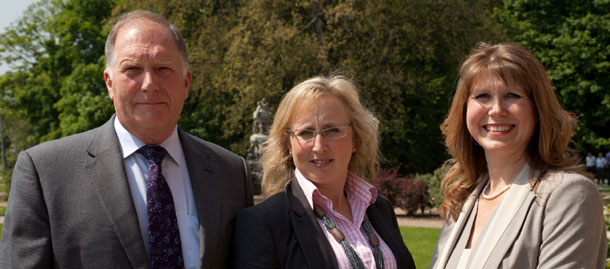 Senior managers and HR professionals from public, private and third sector organisations in the Midlands say measuring the return on investment from employee development is a critical element of the development strategy, but should not be the sole responsibility of HR professionals.
Senior managers and HR professionals from public, private and third sector organisations in the Midlands say measuring the return on investment from employee development is a critical element of the development strategy, but should not be the sole responsibility of HR professionals.
The views emerged at a ‘Talent Forum’ hosted by Awbery Management Centre of Repton, Derbyshire, held in Nottingham to debate the issue of talent development in the workplace and facilitated by Kevin Goodman, Group Director of Organisation and Development at Babcock International Group.
“The current economic climate is encouraging businesses to become increasingly concerned with measures for tracking the results of their investment in talent development, and we saw this as a significant and timely discussion issue for our latest Forum,” said Jane Rawden, head of HR services at Awbery.
“It was clear from the Forum’s debate and discussions that attitude and behaviour are amongst the biggest measures of whether or not talent development is working.
“Namely, this centres around what an individual WILL do rather than simply CAN do, and line managers should be encouraged to show the return on investment they and their team are achieving from a businesses’ talent development programme, rather than assuming this is the role of an HR professional.
“All too often, an organisation assumes measuring talent RoI should be left to HR professionals alone, when in fact so much more can be achieved and learned from encouraging managers to introduce their own means and tools of measuring their own success and that of their team, and this was a view shared by the professionals debating at our Forum. Managers are a key cog in talent development programmes,” she said, “and yet an unwillingness to cooperate or a lack of understanding is what is expected of them, can lead to poor outcomes.”
The Forum revealed that to optimise a managers’ personal responsibility and its potential to empower and motivate, it is important to identify the people who want to grow and develop, and to support them onto the pathway of developing their own talent.
It also identified however a sense that individuals are less willing to make lifestyle changes, such as relocation, in order to take advantage of development opportunities: “you must give individuals sight of the excitement and the challenge of the project,” commented Group Director of Organisation and Development at Babcock International Group, Kevin Goodman, who facilitated the debate.
There was a general consensus that managers tend to recruit based on what is needed now, rather than taking the long view and looking at future development. “Such short-termism, coupled with risk aversion, could explain why organisations frequently end up with caretaker managers rather than the architects of the future they need to drive the business forward,” commented Jane Rawden.
360 degree appraisals were agreed as a valuable talent development system tool, as these help both managers and individuals to reflect, as Jane explained: “It was felt that these appraisals can be a valuable tool in measuring the return on investment from talent development, as well as a chance for conversation.”
The Awbery Talent Forum was the second in the 2012 series of debating events hosted by the Awbery Management Centre.





















